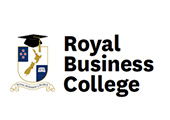Country Selection
Visa Expert Consultancy works closely with more than 100 Universities and Colleges in 18+ countries. Passport to the World: Unlock Unique Entry Requirements for Each Country
University Selection
Selecting the right course abroad is crucial for any student. At Visa Expert Consultancy, we assist students in choosing the ideal course and university tailored to their needs.
Career Guidance
Every day, we have students from all walks of life approaching us for their career guidance. The visa expert consultancy team has vast industrial experience as the our members are in abroad.
About Us
Visa Expert Consultancy
Study Abroad? We Help! Visa Expert Consultancy.
Want to study abroad? Feeling overwhelmed? Visa Expert Consultancy is here. We connect students with universities & guide visa applications. Get expert guidance. Personalized approach. Stress-free process. Unlock your potential. Study abroad with Visa Expert Consultancy!

FAQ
Frequently Asked Questions
There are many reasons why study abroad programs are becoming so popular. For most international students, the appeal is likely to be a combination of gaining a high-quality education, experiencing immersion in a new culture (and often a second language), gaining a global mindset and expanding future employment prospects.
Choosing where in the world you wish to study is not always an easy task. As well as your own personal interests, you should think about practicalities such as the costs of studying in that country (both tuition costs and living costs), your graduate career prospects (is there a good job market?) and your overall safety and welfare.
The length of time you spend studying abroad will depend on the program and level of degree you’re undertaking. Generally, an undergraduate degree will take three or four years of full-time study (for example, in the UK the typical length for most subjects is three years, while in the US the norm is four), while a graduate degree such as a master’s degree or equivalent will take one or two years. A doctoral (PhD) program will usually take three to four years.
ntry requirements vary widely between universities and between countries, so be sure to check the information provided by your prospective university before submitting anything. Speaking generally, however, if you are applying for an undergraduate degree you will be asked to show that you have completed your secondary education to a standard that is in line with the required grades (e.g. your GPA, A-level grades or equivalent) for the program you’re applying to. If you have an international qualification and are unsure whether this is accepted, you should contact the admissions department of the university. For non-native English speakers wanting to study in English-speaking countries, it is also highly likely that you’ll need to provide proof of your English-language proficiency by taking an English-language test such as TOEFL or IELTS. Similar tests may be required for those studying in other languages. For more information about language tests, refer to question eight.
This depends on the country you wish to study in, and the language your course will be taught in. If you’re not a native English speaker but wish to study a course taught in English, you will have to prove you can speak the language to a fairly high level, by providing English-language test results. This is to ensure you will be able to follow your course without any comprehension problems.
As a prospective international student, it is relatively unlikely for schools to expect you to attend an admissions interview in person, although this is not unheard of – especially for the most competitive programs. Some universities hold international interviews in various locations around the world, so you may be expected to attend one of these. There is also a growing trend of using video interviewing. This is like any other interview, with a prearranged time and date, but will take place online, via an application such as Skype.
Student visas are a big question for those who want to know how to study abroad, though not all international students will need one. If you’re an EU citizen planning to study in another EU country, for instance, you don’t need a visa.
Contact US
Top Universities




























